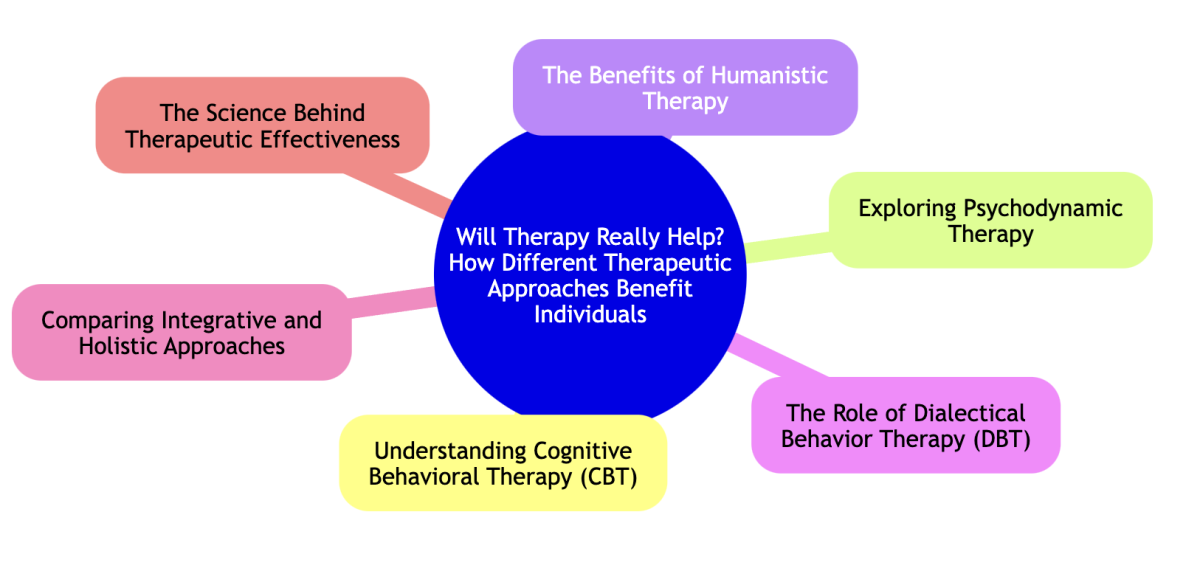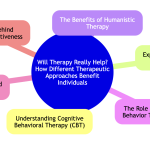Introduction to the Benefits of Therapy
Will therapy really help?
That is a question many people ask when considering consulting with a psychologist. For countless people all over the world, therapy is an indispensable resource that helps them with emotional stability, recovery, and improved happiness.
For many, though, therapy is not the answer. It comes down to personal characteristics (are you someone who finds comfort in validation from others) and situational aspects (what could be causing your emotional setbacks).
This article from Brooklyn Psychologist, Dr. David Tzall, discusses the different approaches that make therapy effective for different individuals.
Key Takeaways
- Therapy provides personalized strategies for mental health.
- Different approaches cater to various needs.
- Evidence-based methods ensure effectiveness.
- Therapy fosters self-awareness and personal growth.
- Professional guidance aids in long-term mental health management.

Understanding Cognitive Behavioral Therapy (CBT)
Cognitive Behavioral Therapy (CBT) is a widely used approach that focuses on changing negative thought patterns and behaviors.
The main goal of CBT is to help individuals identify and challenge distorted thoughts and beliefs, replacing them with more realistic and positive ones. This approach is particularly effective for treating conditions like depression, anxiety, and PTSD.
CBT involves structured sessions where therapists work with clients to identify negative thoughts, understand their impact, and develop strategies to counteract them.
Homework assignments are often used to practice these new skills in real-life situations, reinforcing the therapeutic process outside of sessions. This hands-on, practical approach makes CBT a powerful tool for mental health improvement.
Exploring Psychodynamic Therapy
Psychodynamic therapy focuses on exploring unconscious processes and past experiences to understand current behavior and emotional states.
This approach helps individuals gain insights into unresolved conflicts and emotional struggles that may be influencing their present life.
Key Aspects of Psychodynamic Therapy
- Identifying unconscious conflicts: Uncover hidden struggles that influence behavior.
- Understanding the impact of childhood experiences: Explore how early life events shape current emotions and relationships.
- Gaining insight into recurring patterns: Recognize and break harmful cycles of behavior.
- Exploring emotions and thoughts: Explore feelings and thoughts to achieve deeper understanding.
- Building self-awareness and understanding: Develop a clearer sense of self and emotional well-being.
The Benefits of Humanistic Therapy
Person-Centered Therapy
Person-centered therapy, developed by Carl Rogers, focuses on providing a supportive environment where clients can explore and discover their true selves.
The therapist offers unconditional positive regard, empathy, and genuineness, creating a safe space for clients to express themselves without judgment.
Gestalt Therapy
Gestalt therapy emphasizes present-moment awareness and personal responsibility.
Clients learn to become aware of their immediate thoughts, feelings, and actions and understand how they influence their current experiences. This approach helps individuals integrate different parts of themselves to achieve wholeness and balance.
Existential Therapy
Existential therapy explores themes of meaning, freedom, and existential anxiety.
It helps clients confront the inherent challenges of human existence, such as isolation, freedom, and mortality, and encourages them to find purpose and authenticity in their lives. This approach fosters personal growth and self-discovery.
The Role of Dialectical Behavior Therapy (DBT)
Dialectical Behavior Therapy (DBT) focuses on emotional regulation, mindfulness, and distress tolerance.
Originally developed for individuals with borderline personality disorder, DBT is effective for a range of mental health issues.
Core Components of DBT
- Emotional regulation techniques: Strategies to manage intense emotions and reduce vulnerability.
- Mindfulness practices: Exercises to enhance awareness and acceptance of the present moment.
- Interpersonal effectiveness skills: Tools to improve communication and relationships.
- Distress tolerance methods: Techniques to cope with and tolerate distressing situations without resorting to harmful behaviors.
Comparing Integrative and Holistic Approaches
Integrative and holistic approaches in therapy combine elements from various therapeutic methods to create a tailored treatment plan for individual needs.
These approaches are flexible and adaptable, addressing complex mental health issues by incorporating techniques from cognitive-behavioral therapy, psychodynamic therapy, humanistic therapy, and more.
By considering the whole person—mind, body, and spirit—integrative and holistic therapies provide comprehensive care that can lead to more effective and sustainable mental health improvements.
The Science Behind Therapeutic Effectiveness
Research supports the effectiveness of various therapeutic approaches through rigorous studies, including meta-analyses and clinical trials.
These studies evaluate the success of therapies like CBT, psychodynamic therapy, and DBT by measuring improvements in symptoms, quality of life, and overall functioning.
For instance, meta-analyses often show that CBT is highly effective for treating anxiety and depression, while psychodynamic therapy can lead to long-term benefits by addressing underlying emotional issues.
Therapy outcomes are measured using standardized tools and assessments that track progress over time.
Evidence-based practice ensures that the methods used in therapy are scientifically validated, leading to better treatment outcomes. Therapists continuously update their practices based on the latest research, ensuring clients receive the most effective care possible.
Therapy Does Help - Finding the Right Approach with Brooklyn Psychologist David Tzall
Different therapeutic approaches offer various benefits, making it essential to find the right fit for individual needs. Each method, whether CBT, psychodynamic, humanistic, or integrative, provides unique tools and insights to improve mental health significantly. The overall positive impact of therapy on well-being and personal growth is well-documented, highlighting its importance in mental health care.
Dr. Tzall's expertise as a trusted therapist in Brooklyn has helped countless individuals improve their outlook and mental fortitude. During consultations and following sessions, Dr. Tzall identifies the most appropriate approach with each client and tailors that approach to maximize its effectiveness.
For anyone considering therapy in Brooklyn, reach out to Dr. David Tzall, psy.D for a free consultation. Call today!


















